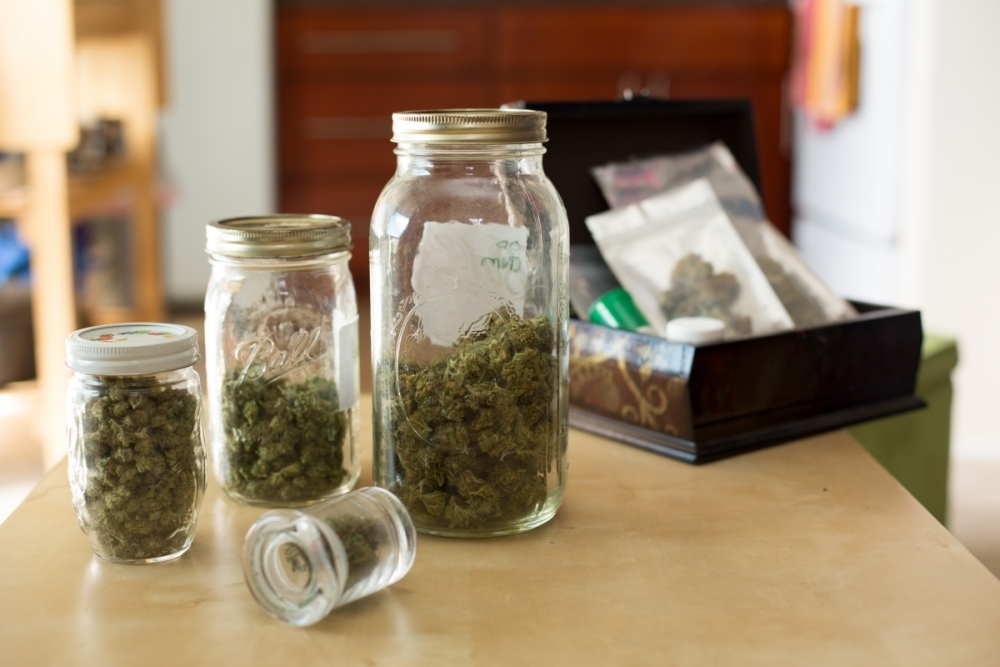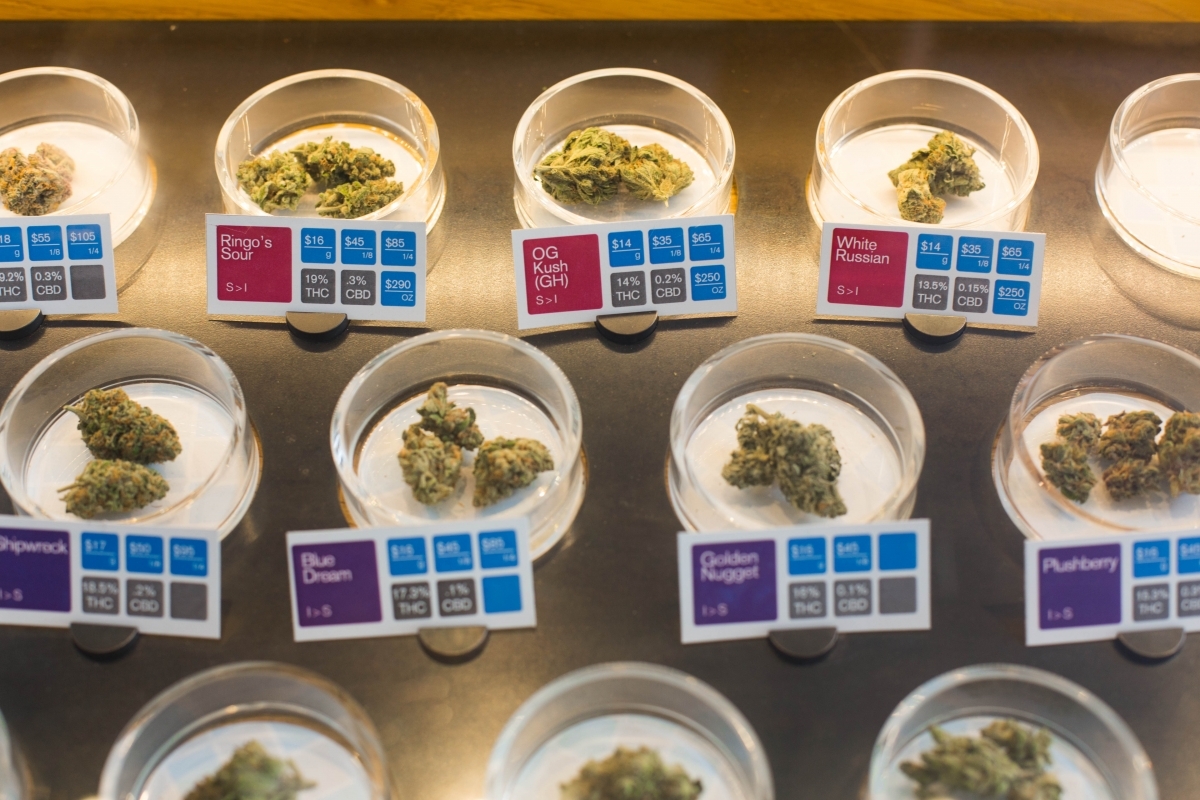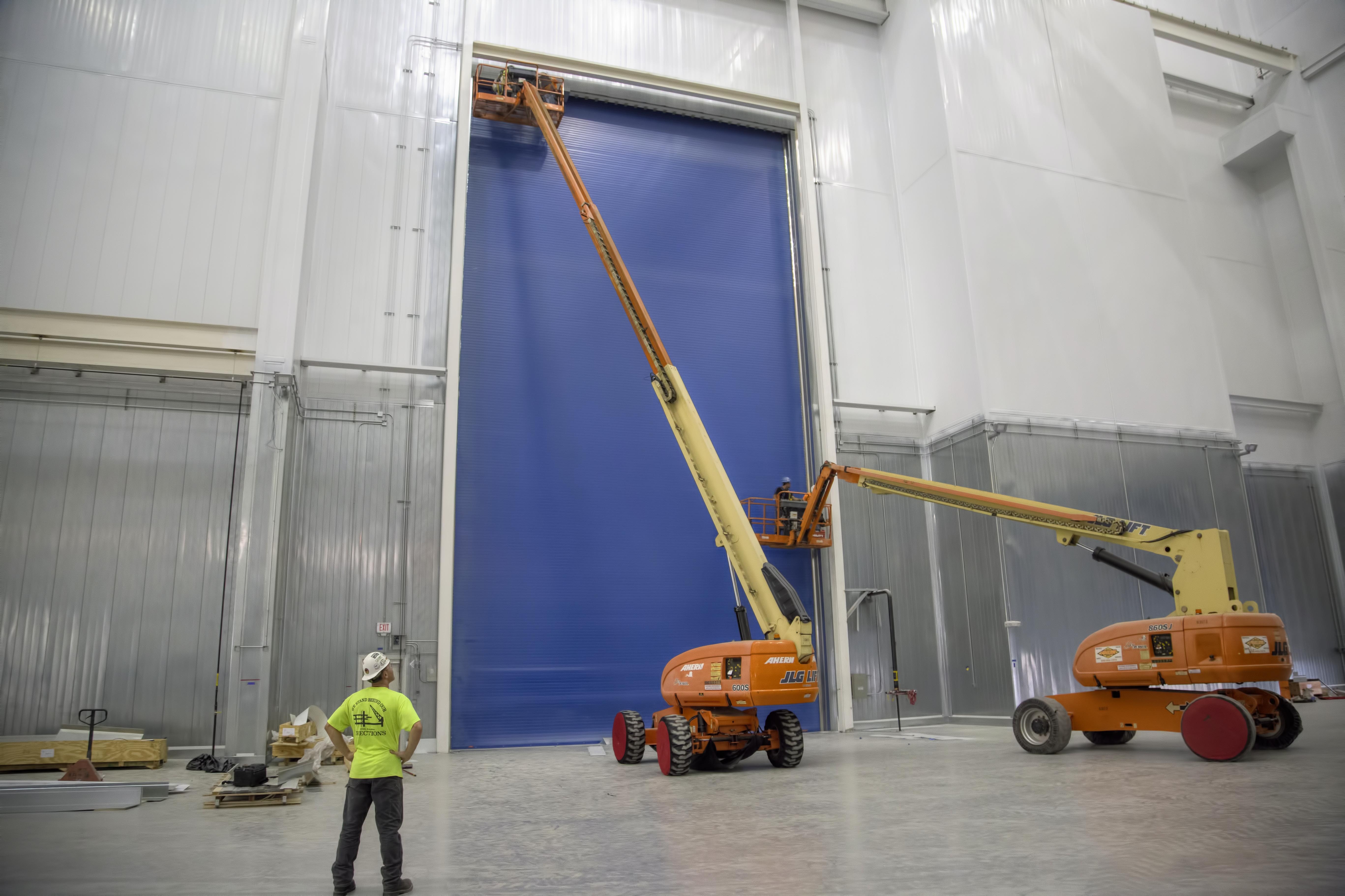Legalized Cannabis and Construction
by Mark Robins | 1 January 2019 12:00 am
Many questions are raised regarding the cloud of marijuana’s job-site impact

But times have changed, and it is impossible to ignore marijuana’s impact in the workplace.
High Times
According to the National Center for Biotechnology Information, U.S. National Library of Medicine, the greenish-gray shredded leaves and flowers of the cannabis sativa plant are smoked (along with stems and seeds) in cigarettes, cigars, pipes, water pipes or “blunts” (marijuana rolled in the tobacco leaf wrapper from a cigar). Hashish is a related product created from the resin of marijuana flowers and is usually smoked (by itself or in a mixture with tobacco) but can be ingested orally. Marijuana can also be used to brew tea, and its oil-based extract can be mixed into food products.
Even though marijuana use remains illegal and fully criminalized according to federal law, as of the November 2018 mid-term elections, 10 states and Washington, D.C., have legalized marijuana for recreational use, i.e., no doctor’s letter required for adults over the age of 21. Thus far, the federal government has taken a hands-off approach in states that have legalized aspects of cannabis. Over 30 states have legalized medical marijuana. In 2017, legal marijuana sales reached $9.7 billion in North America according to a report from Arcview Market Research and BDS Analytics. Also in 2017, a Gallup poll showed that 64 percent of Americans support legalization. So, how does all of this affect workers and employers in the construction industry?
Cannabis Questions
The evolution and escalation of legal marijuana status has important and unique issues for the construction industry. Furthermore, marijuana’s legalization has occurred in an inconsistent and and unclear fashion at the state level. Construction companies are finding themselves dealing with many uncertainties to accommodate legal changes and workplace legalities. Employers are addressing possible changes to their policies and procedures such as:

Smoking cannabis through a water pipe. (Photo courtesy of Sonya Yruel/Drug Policy Alliance)
• Are employers required to accommodate the use, possession or sales of marijuana on the job site in states where it is legal?
• What about employees using medical marijuana under a physician’s care?
• What changes, if any, should companies make to their drug testing policies?
• What legal rights do employers have to sanction employees who use marijuana off-the clock?
• How can federal construction contractors comply with federal drug-free workplace laws without violating state law?
• What are the safety implications and how can employers protect workers on the job site?
“It’s too early to tell what the overall impact is on the metal construction industry,” says Josh Quinter associate managing principal and partner in the construction law department of Offit Kurman[1], Plymouth Meeting, Pa. “It has not been widely legalized for very long. In addition, many current business owners in the metal construction industry are used to operating in the old environment and still run their business under the old rules. This is not a bad idea. I tell my clients do exactly this for the time being because federal law has not changed.”
Indeed, federal law has not changed, and one area where the interaction between employment laws and marijuana use (even if for medical purposes) is extremely clear is on federal construction projects. Because marijuana is illegal on a federal level, any use of the drug by a worker on a federal project is also illegal. This means that regardless of the circumstances and state laws on the substance, any contractor, sub, supplier or laborer cannot consume marijuana if working on a federal project.
High on the Job Site
Metal construction deals with giant structures, confined areas, power tools and dangerous heights on a daily basis. Safety concerns are often a company’s primary reason for prohibiting marijuana on a construction site and they are a valid basis for banning the drug. Construction workers must have full use of their skills and faculties to safely perform their jobs, and prevent job accidents and injuries.
But marijuana’s negative effects (caused by its active ingredient and what give the “high”: THC) can include changes in sensory perception, altered thought formation and expression, short-term memory problems, and impaired thinking and learning. Negative physical effects include impaired motor performance, loss of balance and coordination, decreased attentiveness and alertness, prolonged response time to stimuli and danger, decreased ability to judge distance and space, and impaired ability to perform complex tasks.

Cannabis flowers with quality testing results on display at a dispensary. (Photo courtesy of Sonya Yruel/Drug Policy Alliance)
According to a study reported by the National Institute on Drug Abuse, employees who tested positive for marijuana had 55 percent more industrial accidents, 85 percent more injuries and 75 percent greater absenteeism compared to those who tested negative. Also impacting the bottom line are:
• Decreased productivity
• Increased worker compensation and unemployment compensation claims
• High turnover
• Lawsuits
So what then are the dangers of employees smoking marijuana on a metal construction site? Ronnie Williams, president, Maverick Steel Inc.[2], Byers, Colo., emphatically answers, “Everything! Heights, operating large ‘Tonka Toys,’ cutting tools, torches, and did I say heights? Drugs and metal don’t mix! I am a retired Denver police officer; it would be about the same as going on duty high with a loaded gun.”
Maverick Steel treats employee safety issues related to marijuana the same as any other safety issue. “If an employee elects to do stuff that endangers the well-being of others, be it alcohol, marijuana or any other drug, we have no place in our company for them,” Williams adds. “Accidents are just that, accidents. Doing drugs is no accident. Colorado is an at-will employment state, so that’s very beneficial when it comes to any type of intoxicant or safety violation.”
Michelle Stephens, treasurer and co-owner of Bel-Con Design-Builders Ltd.[3], Belleville, Ontario, Canada, believes that metal erection and construction in general are statistically hazardous environments. “Whether it is due to risks associated with working at heights, site traffic, hoisting, etc., worker safety is at a much increased risk when attentiveness and alertness are decreased,” she adds. “We have zero tolerance for any unauthorized activities that compromise the safety of workers on our job sites.”
Quinter believes anytime an employee is working high off the ground, around heavy equipment, or using things like welding torches, it’s dangerous work. “Employees need sound judgment, motor skills that are not impaired, and their wits to do good work and avoid being injured,” he explains. It should be the goal of everyone in the metal construction segment and the construction industry as a whole to send employees home safe at the end of each work day.”
A Colorado-based metal building contractor, who asked to not be identified, says that at first, legalized marijuana was a large concern for construction companies in Colorado, but the reality regarding the concerns of legalized marijuana has been partially minimized because many contactors have used a zero-tolerance approach to new and current workers. However, “With the construction section short on qualified workers and professionals, my experience is that marijuana is having a negative impact on bringing new individuals into our industry in Colorado,” the contractor adds.
Drug Test
Studies show drug testing works; employees are less likely to produce a positive test result if they know they will be tested. Can you drug test someone for marijuana if it is legal in your state? The answer to this is still inconclusive, however, generally, employees can still be drug tested by their employer, and they can still be terminated for failing a drug test, even in many states where marijuana use is legal and even if they are not under the influence at work.

Because metal construction deals with giant structures, confined areas, power tools and heights on a daily basis, there are safety concerns regarding marijuana’s affect on job sites. (Photo courtesy of Thomas Phoenix International)
According to the National Safety Council, an employer’s drug policy should include:
• Proper management training to make managers more likely to enforce the policy.
• Access to support for employees with drug problems, which can range from a formal assistance program to a referral to local resources.
• Clearly defined use and possession parameters for employees.
• Established rules for post-accident testing.
• Rules on how you will handle an employee’s conviction or arrest.
A drug policy must be very specific and supported by workplace procedures to reduce the chance of litigation. Drug policy and workplace procedures should be reviewed by a lawyer to ensure they comply with state laws. Also, understand that unlike alcohol, which wears off quickly and disappears from the body in a matter of hours, THC can remain in a person’s bloodstream for up to six weeks.
At Maverick Steel, its standing position is, “What you do on your own time is your business, but if it affects our time, you’re fired!” “Once again, it doesn’t matter what type of intoxicant it is, if an employee jeopardizes the safety of others they will be fired,” Williams says. “Our drug policy states that we can test randomly or for cause, and any time there is an accident, the employee involved will be required to submit to a drug test. Our policy must be working as we have been accident free for 2018. Make sure your employees have a clear understanding of your drug policy. Most think that since it is legal now, that they have rights. Wrong! Let them know right where you stand from day one.”
Paul Rich, owner of Iron Monkeys Construction Ltd.[4], Canby, Ore., says his company does not drug test, but says, “I believe in it.” Rich explains that if an Iron Monkeys Construction employee is under the influence of anything, then they are terminated.
“There’s too much heavy equipment and large pieces of steel in play and anybody who is impaired could pose safety concerns for the other employees and myself,” he adds. “If someone shows up on the job site and is visibly impaired or smells of marijuana, they are sent home for the day with a warning.”
Help and Advice
Quinter says to get help and advice on this topic, refer to OSHA and various state agencies who are putting out information on this subject. “There are also a number of source materials online; but I suggest cross referencing them and making sure the information is reliable.”
He also advises business owners keep an open and honest dialogue with employees about the issue. “Many employees don’t understand the complexity of it all,” he adds. “The word legal is thrown around and some automatically assume they have free reign to do whatever they want. Good employees want to work in a safe environment and don’t get too worked up about it once they understand the policy and why it is in place.”
- Offit Kurman: http://www.offitkurman.com
- Maverick Steel Inc.: http://www.mavericksteel.net
- Bel-Con Design-Builders Ltd.: http://www.bel-con.com
- Iron Monkeys Construction Ltd.: http://www.imcsteelbuildings.com
Source URL: https://www.metalconstructionnews.com/articles/legalized-cannabis-and-construction/